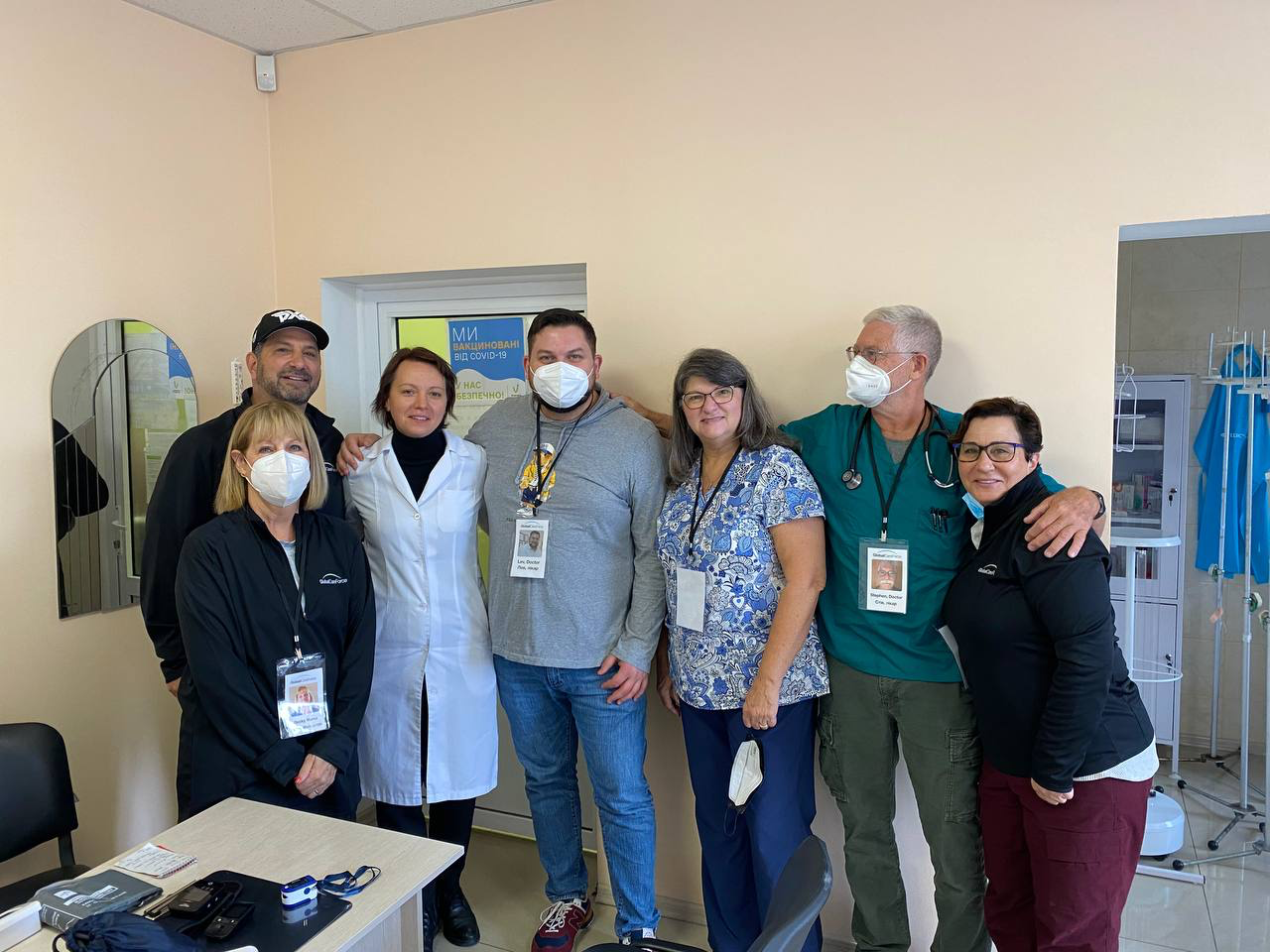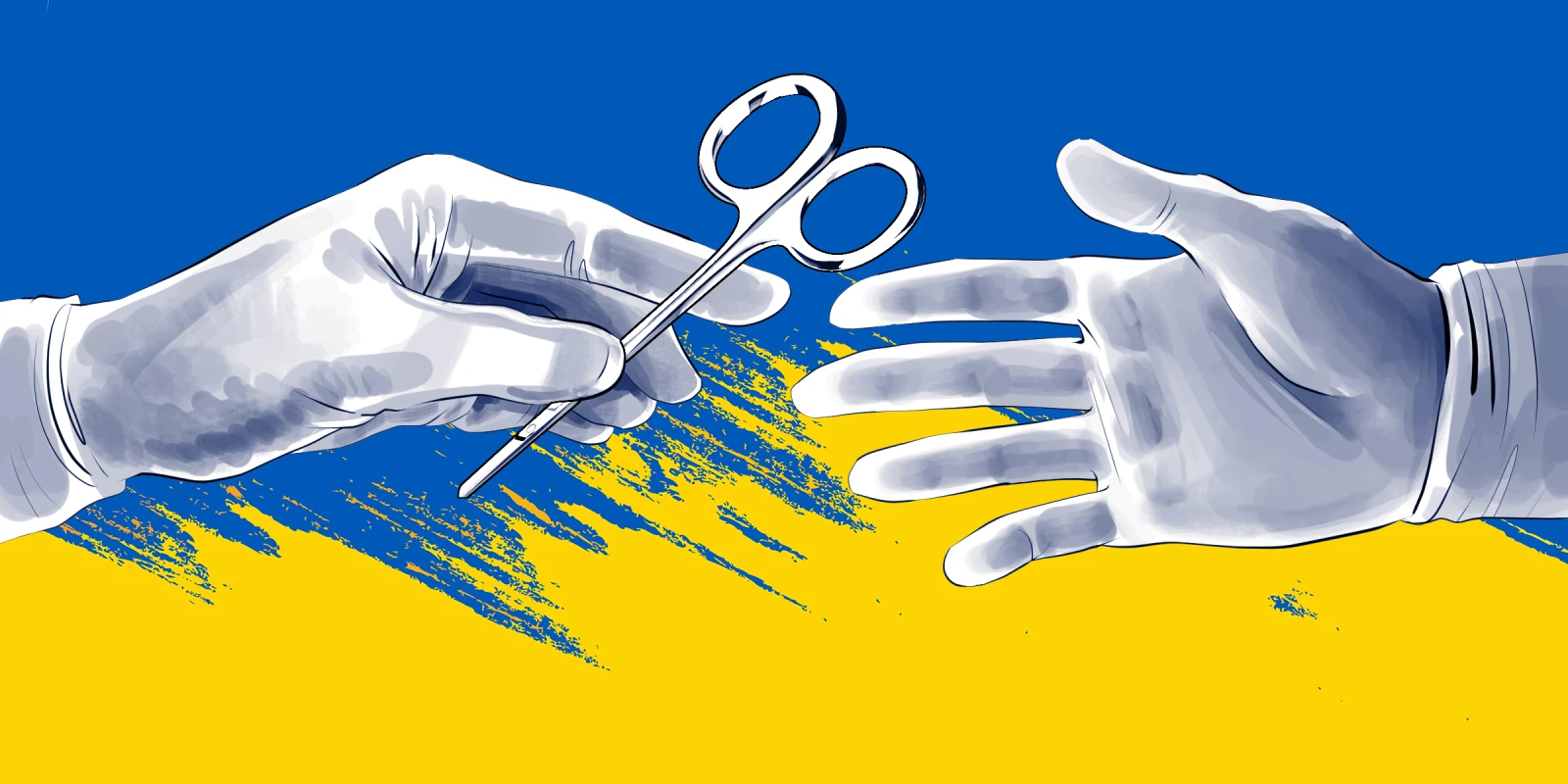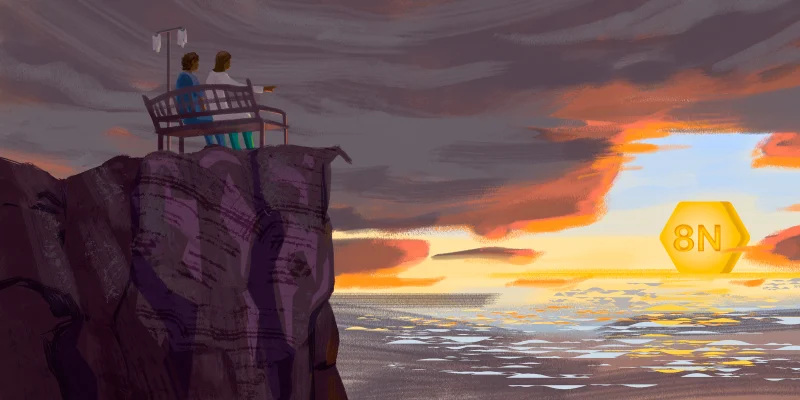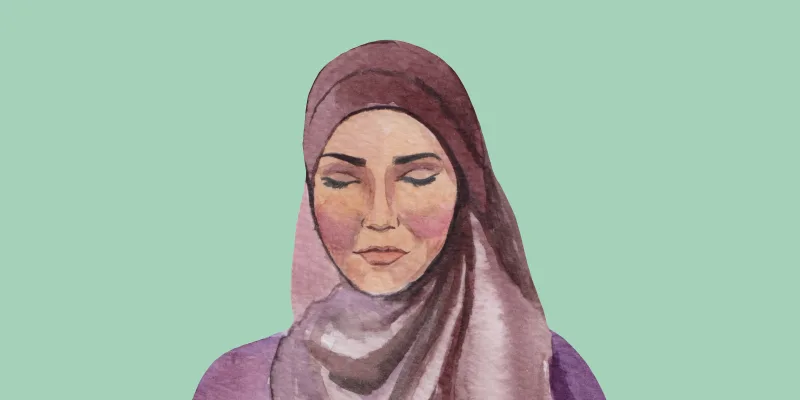More than eight months of war in Ukraine have challenged the country’s health care system. According to the WHO, one in three Ukrainians in active conflict areas is not able to access medications for chronic conditions like cardiovascular disease and diabetes. Dr. Andrew Villa, MD, addressed this ongoing gap in essential primary care during a recent trip to Ukraine in partnership with Global Care Force. He comes equipped with 20-plus years of international volunteer work and shared his experience with Doximity on practicing medicine in Ukraine and around the world.
Dox: Tell us about practicing in Ukraine. Who were your patients and what were you typically treating?
AV: It was intermittently heartbreaking. We set up clinics in villages and towns where a large portion of the medical community either left the country, went to serve, or was killed. So the places we went to were underserved, even from a Ukrainian standpoint. We set up clinics from the Belarus border all the way down to the Black Sea to Odesa. We heard incredible stories and courage.
I’m an ob/gyn by training, but on most of these trips, I practice primary care and urgent care. On this trip, we treated a lot of diabetes and hypertension. There was a lot of depression and PTSD. And we did a little bit of wound care. We took all comers, adults, and children.
Dox: You were in a new place for a limited time. How did you build trust and rapport with patients? How did you approach the language barrier?
AV: We arranged for translators and couldn’t do our work without them. People spoke Russian or Ukrainian on previous trips [to Ukraine], but now you have to speak Ukrainian. They do not want to speak Russian. Sometimes patients would bring medical records like radiology reports and Google Translate was invaluable for translating medical language.
Most trips we go on are to places that are U.S.-friendly. And in this last trip, it was good to have an American passport because the general population there is really appreciative of U.S. support and NATO. They appreciate American medicine. Ukrainians use a lot of supplements and naturopathic medications and this one Ukrainian physician was a huge help. I didn’t know if what they were taking was a medication or supplement and he would tell us if something was a naturopathic remedy for a certain condition.
Dox: How do patients manage their conditions after you leave?
AV: We’re the initial team for Global Care Force. Their plan is to take a team every month into the same areas we were in. If I start someone on blood pressure medicine, they can come back to the clinic the next month to be seen by another team. It’s awesome that Global Care Force understands that follow-up care is critical. If I start someone on blood pressure medicine, two things may happen. They may run out of meds or they may not be responding to the medicine. In other places I’ve been to, it’s one-and-done. It’s hard to treat diabetes and hypertension without follow-up care.
Dox: How did you provide trauma-informed care?
AV: Because every area we were in had been adversely affected by the war, we assumed people had depression and PTSD. Either houses were devastated or family members were killed or actively fighting. One of the physicians we went with had a meditation guide and we had it translated into Ukrainian. I handed that out hundreds of times. We talked about stress relief and coping mechanisms. We gave antidepressants when appropriate. I left, but their country is still at war.
Dox: How was your team set up to provide care?
AV: On this particular trip we had three physicians and a registered nurse who headed up our triage department. Patients would come in and she would manage blood pressure and AccuChecks and determine the reasons they’re there. Then they would see a physician. And we had support people to help with registration and paperwork. We had pharmacy help too. The team starts with determining how many medical providers are needed and from there [determine] how many support personnel are needed.

Dox: How did you prepare for and physically set up clinic?
AV: One of the clinics we went to near the Belarus border had all their windows blown out. When we got back we raised enough money through our church to get those windows replaced and get electricity restored. If a home didn’t get hit by a bomb, just the concussive force from nearby can shatter windows.
The key to these types of trips is to be flexible. We were always in buildings we felt were safe. Team safety is mission number one. They may have been chilly, but we just dressed appropriately. Internet-wise, we used an app called Telegram to communicate in-country and with people back home because we turned off location services and didn’t want to be tracked. We used a portable internet wireless connection. We didn’t text or use social media. We were probably good targets at the time.
Dox: What were you unprepared for?
AV: On every trip, we send out a list of things to bring like flashlights, warm clothing, and other necessities. We had a schedule of where we thought we would be and it worked out, but we knew things could change. If a town is actively getting bombed or shelled or droned, we’d have to pick an alternate location or hunker down. We went to Odesa at the end of our trip and the day after we left they got bombed. We were lucky we got out. We traveled in two vans and we took everything with us wherever we went. You have to have local contacts and a well-vetted team.
I’d previously been to Ukraine years ago and people I had worked with previously were part of the Global Care Force team locals. It was cool seeing them again. The translator I had worked with personally 14, 16 years ago showed me a picture of us in the same facility [we were in].
Dox: What other advice do you have for clinicians interested in practicing abroad or helping in Ukraine?
AV: One, put your ego aside. Two, people in other countries do things a little differently. And three, people across the world are very similar. Similar needs, desires, and hopes. Be prepared to be really tired for most of your trip. But I highly recommend it. You’ll come back a changed person.
I think [Ukrainians] really appreciate and recognize that people all over the world care for them and think that they’re important. I know we see stuff in the news and it looks horrible. It’s worse when you’re there. You’re seeing it in person, the char that you can’t smell on TV. And how [war] affects literally every single person you come in contact with. They need our continued support.
Interview conducted by Angelica Recierdo
Image provided with permission by Dr. Andrew Villa, MD
Illustration collage by April Brust / Eljan / Shutterstock







